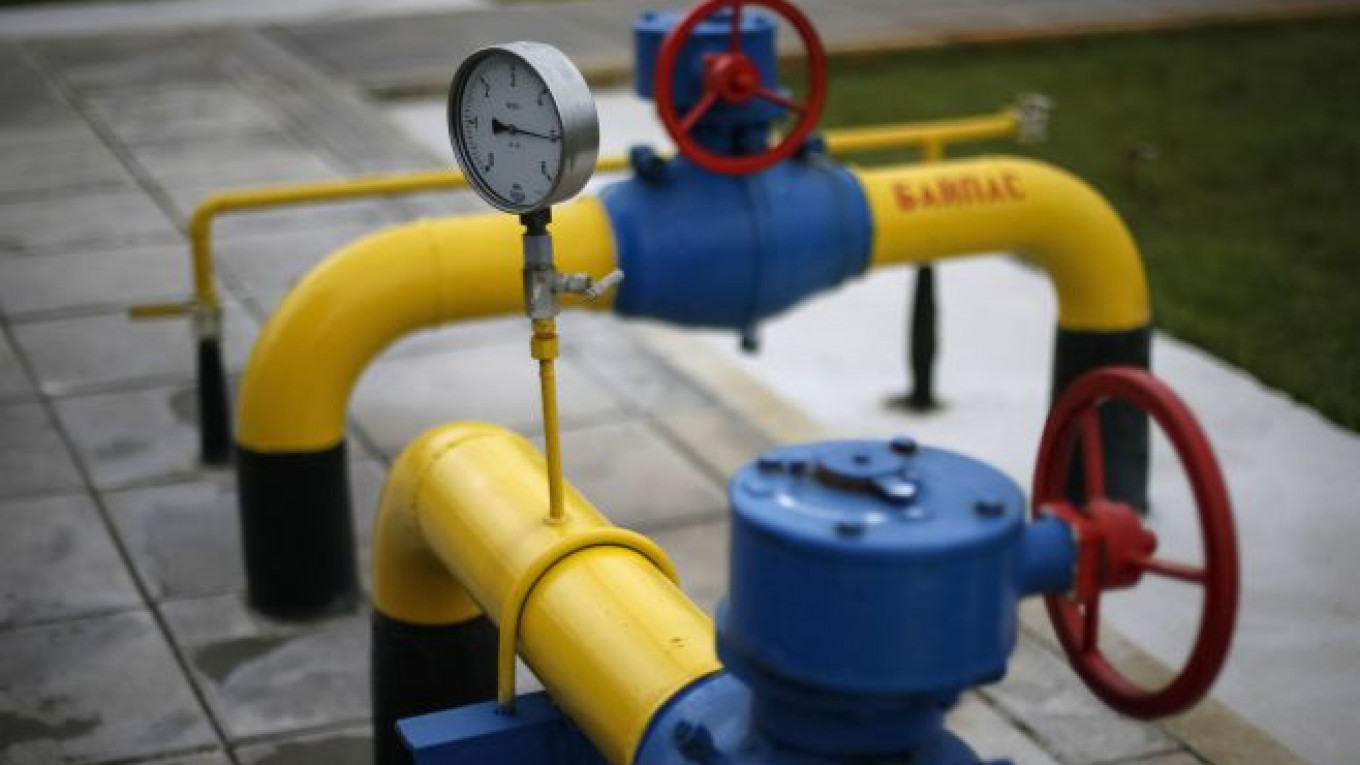Ukraine aims to avoid using an interim gas deal signed last month for as long as it can and eventually end its reliance on Russian gas through better EU connections, Naftogaz Chief Executive Andriy Kobolyev said Tuesday.
Ukraine and Russia signed an agreement, brokered by the European Commission, at the end of October to cover gas supplies over the winter months as a temporary solution to a longstanding price dispute between Moscow and Kiev.
But Russian gas giant Gazprom has yet to resume shipments to Kiev, which it suspended in June, and Ukraine has yet to provide the prepayment, which Moscow says is a condition for restarting gas supplies.
Kobolyev did not specify levels but said Ukraine had significant gas storage. According to EU storage data, it is roughly half full.
How long that will last depends on the weather and other variables, including falling industrial demand because of conflict in eastern Ukraine and European Union progress on reversing gas flows, Kobolyev said.
The interim gas accord was only an insurance policy.
"Signing this deal with the Russian Federation was necessary to make sure that we are able to go through peak demand when we have low temperatures," Kobolyev said. "As soon as we decide it is time to pay for Russian gas, we will make an advance payment."
Ukraine's annual gas demand tends to be around 50 billion cubic meters (bcm), with half of consumption usually provided by Russia. Moscow likely delivered 5-10 bcm between January and June.
Ukraine's annual gas production is 25 bcm, though that figure will be lower this year due to the loss of Crimea, leaving Ukraine still needing 15-20 bcm from elsewhere.
While Russia is working on transit routes to bypass Ukraine, the dream for Naftogaz is to get its gas via the EU through technology to pump back gas from Russia or other sources, such as Norway, priced at market levels.
The biggest potential is through Slovakia, which Kobolyev said could eliminate the need for imports directly from Russia, although Gazprom has challenged the legality of rerouting gas it exports to the EU.
"We are trying to resolve this," said Kobolyev, in Brussels for talks with EU officials. "We believe that will be the best solution for everybody if there is such a huge loss of trust between Ukraine and Russia."
Kobolyev took office in March with a brief to end corruption.
"The oil and gas sector in Ukraine in terms of corruption is probably the most difficult sector to deal with," he said.
The CEO said as part of the anticorruption drive he was working on "a 50 percent principle," aimed at replacing half the company's staff with new people, including from international companies. He gave no time frame.
He also said Naftogaz was working on eliminating middlemen to deal directly with suppliers.


